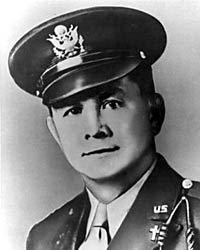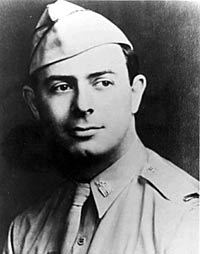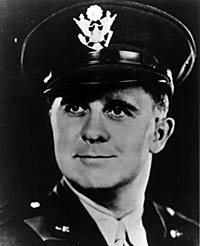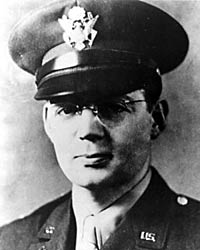Readings:
Psalm 46
Joel 2:28-32
Romans 8:15b-19, 38-39
John 15:9-14
Preface of All Saints
[Common of a Pastor]
[Common of a Martyr]
[For the Nation]
[Of the Holy Cross]
PRAYER (traditional language)
Holy God, who didst inspire the Dorchester chaplains to be models of steadfast sacrificial love in a tragic and terrifying time: Help us to follow their example, that their courageous ministry may inspire chaplains and all who serve, to recognize thy presence in the midst of peril; through Jesus Christ our Savior, who livest and reignest with thee and the Holy Spirit, one God, for ever and ever. Amen.
PRAYER (contemporary language)
Holy God, you inspired the Dorchester chaplains to be models of steadfast sacrificial love in a tragic and terrifying time: Help us to follow their example, that their courageous ministry may inspire chaplains and all who serve, to recognize your presence in the midst of peril; through Jesus Christ our Savior, who lives and reigns with you and the Holy Spirit, one God, for ever and ever. Amen.
General Convention 2018 voted to refer inclusion of this commemoration to the Standing Committee for Liturgy & Music for further review.
Return to Lectionary Home Page
Webmaster: Charles Wohlers
Last updated: 8 December 2018
DORCHESTER CHAPLAINS:
Lieutenant George Fox, Lieutenant Alexander D. Goode, Lieutenant Clark V. Poling, Lieutenant John P. Washington,
1943
 George L. Fox |
 Alexander D Goode |
 Clark V. Poling |
 John P Washington |
The Four Chaplains were four United States Army chaplains who gave their lives to save other soldiers during the sinking of the USAT Dorchester during World War II. They helped other soldiers board lifeboats and gave up their own life jackets when the supply ran out; 230 of the 904 men aboard the ship were rescued. Life jackets offered little protection from hypothermia which killed most men in the water. Water temperature was 34 °F (1 °C) and air temperature was 36 °F (2 °C). By the time additional rescue ships arrived "...hundreds of dead bodies were seen floating on the water, kept up by their life jackets."
The chaplains, who all held the rank of lieutenant, were the Methodist Reverend George L. Fox, the Jewish Rabbi Alexander D. Goode, the Roman Catholic Priest John P. Washington and the Reformed Church in America Reverend Clark V. Poling. They were sailing on the USAT Dorchester troop transport on February 3, 1943, when the vessel, travelling in convoy, was torpedoed by the German submarine U-223 in the North Atlantic. As the vessel sank, the four chaplains calmed the frightened soldiers and sailors, aided in the evacuation of the ship, and helped guide wounded men to safety. The chaplains also gave up their own life jackets.
As I swam away from the ship, I looked back. The flares had lighted everything. The bow came up high and she slid under. The last thing I saw, the Four Chaplains were up there praying for the safety of the men. They had done everything they could. I did not see them again. They themselves did not have a chance without their life jackets.—Grady Clark, survivor
On December 19, 1944, all four chaplains were posthumously awarded the Purple Heart and the Distinguished Service Cross. The Four Chaplains' Medal was established by act of Congress on July 14, 1960, and was presented posthumously to their next of kin by Secretary of the Army Wilber M. Brucker at Ft. Myer, Virginia on January 18, 1961.
The chaplains were also honored with a stamp, issued in 1948 and by an act of Congress designating February 3 as "Four Chaplains Day."
Goode, Poling and Washington had served as leaders in the Boy Scouts of America.
— from Wikipedia
Chaplains Fox, Goode, Poling, and Washington responded to a high calling from God to represent his love among men of war. On the day they died, they personified the words of Jesus found in John 15:13"Greater love has no one than this, that he lay down his life for his friends."
— from Holy Women, Holy Men